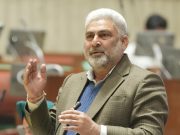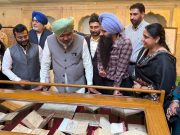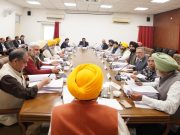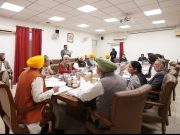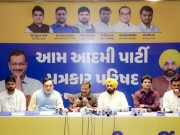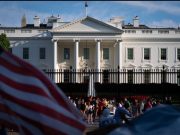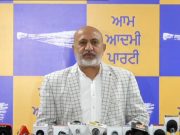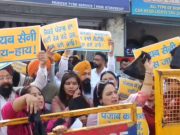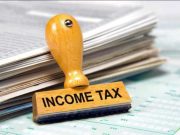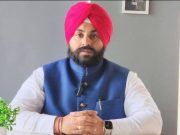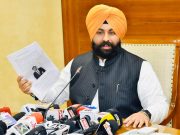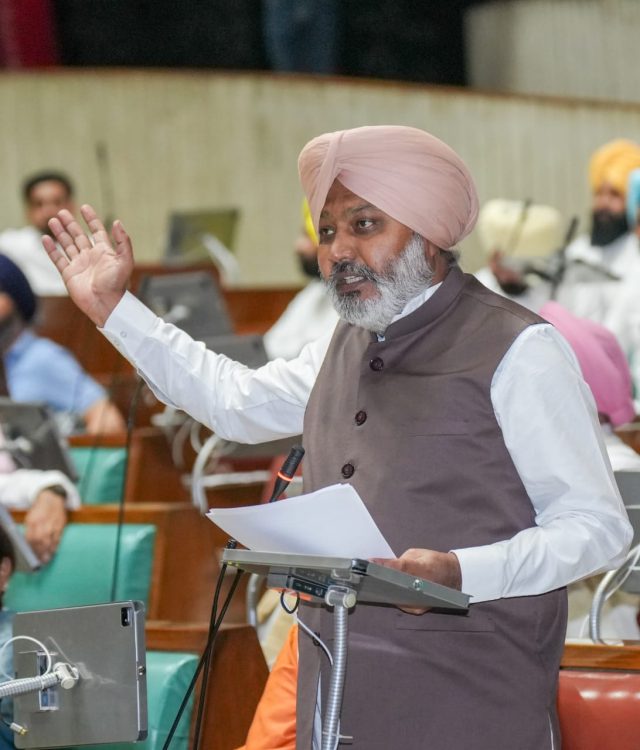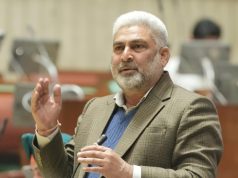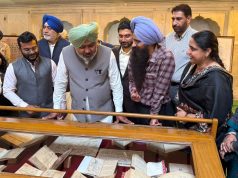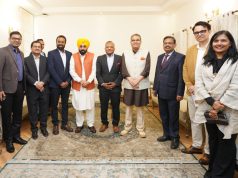Punjab Assembly Passes Punjab Goods and Services Tax (Amendment) Bill, 2025 and Punjab Co-operative Societies (Amendment) Bill, 2025
Chandigarh, September 29
The Punjab Goods and Services Tax (Amendment) Bill, 2025 and the Punjab Co-operative Societies (Amendment) Bill, 2025 were unanimously passed by the Punjab Assembly on Monday, following their introduction by Finance, Planning, Excise, and Taxation Minister, Advocate Harpal Singh Cheema.
Speaking on the Punjab Goods and Services Tax (Amendment) Bill, 2025, Minister Harpal Singh Cheema said that the legislation proposes to amend several sections of the Punjab Goods and Services Tax Act, 2017, including sections 2, 12, 13, 17, 20, 34, 38, 39, 107, 112, and Schedule III, while also inserting new sections 122A and 148A. These amendments are aimed at ensuring uniformity with the provisions of the Central Goods and Services Tax Act, 2017, as recently amended by the Finance Act, 2025.
The Finance Minister also addressed concerns raised by Leader of the Opposition Pratap Singh Bajwa regarding the GST system, referencing an article by former Union Finance Minister P. Chidambaram. Cheema recalled that the proposal for GST was originally brought forward by Mr. Chidambaram himself in 2006, but was not implemented by the UPA government due to opposition. He said that the BJP-led NDA government later advanced the concept on the principle of ‘One-Nation One-Tax,’ which the then Punjab Finance Minister, Manpreet Singh Badal, had agreed to in Delhi. At that time, the Union government had promised the compensation cess would continue until states’ economies stabilised, but this cess was discontinued after the year 2022.
Highlighting the adverse impact on Punjab, Finance Minister Cheema said that the state’s pre-GST revenue neutral rate was 18.3 percent, significantly higher than the country’s average rate of 14 percent. Following GST implementation, Punjab incurred a loss of 1 lakh 11 thousand crores over eight years, while only receiving 61,000 crores from compensation tax. The Minister pointed out that many other states are also grappling with revenue losses due to GST, but are not being heard by the Central government due to the BJP’s majority.
The Finance Minister further asserted that the Congress party should have considered the potential for state losses when they first proposed GST, stating that productive states like Punjab are bearing the brunt because GST is a consumer-based tax. Finance Minister Cheema shared his repeated appeals to Union Finance Minister Nirmala Sitharaman not to destabilise the economies of the states. He warned that if the federal structure is compromised, states would be reduced to the status of municipal committees, subservient to the Centre.
The Finance Minister Harpal Singh Cheema concluded by expressing concern that the BJP is systematically undermining the Constitution drafted by Babasaheb Bhim Rao Ambedkar, citing policies like ‘One Nation One Tax’ and ‘One Nation One Election’ as destructive to the federal structure. He reiterated that the Aam Aadmi Party opposes all such policies, but acknowledged that the GST proposal originated with the Congress party.
————-


